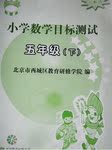My husband Sid and I were never able to have children. I had always wanted a family and that feeling
36 after his death. He was all I had. When he
37 , I felt like I had lost my entire family. I never
38 I would finally get the family I had always wished for. A few years later I met Tom. When we married, I
39 got four grown children and eight grandchildren.
I was
40 about my first meeting with his children. My worries melted away when I realized that they
41 me and were more than willing to bring me into their family. And when his daughters
42 me if their children could call me “Mimi,” I was excited, Tom was divorced, and
43 I was also concerned about the
44 that the children already had two grandmothers. Would the little ones understand
45 I fit into the family?
At our first extended family gathering, I
46 our six-year-old grandson Jim staring at me with a
47 look. He seemed to be thinking about something serious.
48 sporting a big grin(咧嘴笑),he jumped and said, “I know who you are! You are our
49 grandma!” At that moment, I know it was time to just relax and enjoy my new
50 .
People say when a door close, God opens a window. Now I know what that
51 . I lost so much joy when Sid died,
52 now I have a new happy life. I am enjoying so many things I
53 got to experience before like reading bedtime stories. My refrigerator is covered with drawings, and my walls are
54 with photos of the kids. I may be an instant “extra” grandma in Jim’s eyes, but I am just as
55 any other “regular” grandma I know.
| 小题1: | | A.disappeared | B.deepened | C.improved | D.worsened |
|
| 小题2: | | A.died | B.returned | C.recovered | D.divorced |
|
| 小题3: | | A.dreamed | B.found | C.forgot | D.regretted |
|
| 小题4: | | A.unwillingly | B.merely | C.naturally | D.surely |
|
| 小题5: | | A.excited | B.crazy | C.curious | D.anxious |
|
| 小题6: | | A.doubted | B.praised | C.liked | D.changed |
|
| 小题7: | | A.challenged | B.asked | C.promised | D.tested |
|
| 小题8: | | A.as a result | B.in other words | C.from then on | D.in the end |
|
| 小题9: | | A.trouble | B.behavior | C.choice | D.fact |
|
| 小题11: | | A.allowed | B.noticed | C.ignored | D.hated |
|
| 小题12: | | A.frightened | B.sad | C.happy | D.confused |
|
| 小题13: | | A.Generally | B.Eventually | C.Gradually | D.Suddenly |
|
| 小题14: | | A.new | B.extra | C.distant | D.great |
|
| 小题15: | | A.cause | B.partner | C.role | D.job |
|
| 小题16: | | A.contains | B.determines | C.means | D.matters |
|
| 小题18: | | A.ever | B.still | C.once | D.never |
|
| 小题19: | | A.decorated | B.replaced | C.covered | D.filled |
|
| 小题20: | | A.proud | B.busy | C.careful | D.healthy |
|



 天天向上一本好卷系列答案
天天向上一本好卷系列答案 小学生10分钟应用题系列答案
小学生10分钟应用题系列答案 目标测试系列答案
目标测试系列答案